News & Media
Advocating for widows’ rights and recognition
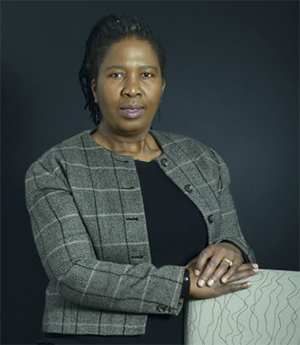
Dr Sizakele Matlabe
Dr Sizakele Matlabe is working hard to draw attention to the rights and often alienated voices and experiences of widows with the aim to provide for their unique support needs.
Matlabe posits that many widows in our communities go through life after the loss of their spouse struggling for basic needs, human rights and dignity. They may be denied inheritance rights to their spouse’s estate or forced into unwanted marriages or traumatising widowhood rituals. She adds that they are stigmatised for life, shunned and shamed. "Yet," she says, "many of these abuses go unnoticed and are even normalised." She shares with us more about her research on the subject and on International Widows’ Day.
Please tell us about your research on widows and why it’s important.
The research project on widows is about having conversations on the difficult questions and the space that we find ourselves in after losing our spouses. The project aims to give widows a safe platform to share their stories without judgement. It also assists us to discuss ways of dealing with anger and challenges that we experience as a result of losing a spouse.
What are the issues around widows in traditional communities?
We found that besides battling with the pain of losing a spouse, many widows also go through conflicts within religious, traditional, modern and cosmopolitan cultural settings.
What are some crucial findings of your research so far?
The most pertinent finding that transpired to me was to realise that there is no research on South African widows and that they suffer abuse at the hands of their families, in-laws, friends, society, church and colleagues. Some widows are forced to wear mourning clothes because of the family’s traditional beliefs. Those who object to wearing the clothes are suspected to have killed their husbands. In some instances, a widow has no right to decide what to do after the death of her spouse. She is told by family members (her family or in-laws) what she should do to mourn her husband. This may include what to wear, and how to carry herself during the bereavement and mourning period.
What do you think is the importance of research like this in society and at Unisa?
This research is important because it advocates for widows’ rights. Findings have shown that some widows are not aware of how to exercise their constitutional rights, such as how to claim their estates. I also found out that some widows’ estates are stolen by family members, especially during the mourning phase when the widow is still too vulnerable to follow diligent processes of claiming the money that the husband has left for her and their children. There are also cases where men became rich through marrying and ultimately divorcing widows. In unfortunate cases, widows and their children are left living in poverty.
Tell us about International Widows’ Day.
International Widows’ Day is commemorated internationally on 23 June annually. It was celebrated for the first time here in South Africa last year (2018). The day intends to support widows and address challenges and abuse faced by widows in the world. Research shows that women in many countries (especially countries that still practice tradition) find themselves denied their inheritance and land rights, while others are evicted from their homes, ostracised, and abused by family or community members. Women are not the only people who suffer after the demise of the husbands. Children of widows are also affected by the passing away of their fathers. This has negative consequences for their schoolwork and makes them vulnerable to abuse, especially if their needs and rights are not taken care of.
Unisa celebrated the day for the first time on 24 June 2019. What was the purpose of the event?
Commemorating International Widows’ Day is very important in our workplace and the surrounding communities because we have widows who suffer in silence. Some widows end up diagnosed with depression. I believe every employer should care about its employees’ holistic health, as it impacts on productivity. Commemorating the day is also crucial because we still have a high rate of women and child abuse in South Africa and little is known about the hardships faced by widows in the country.
How do you plan to grow it moving forward?
We plan to have monthly meetings with widows. I am also going to formally register the project as a community project. I also intend to widen the research scope because we are currently limited to a pilot study in Gauteng only.
Who can participate at coming events, and how do they get hold of organisers?
Anybody (students, academics, and support staff) that is affected by widowhood issues is welcome to attend our functions. We do not discriminate based on gender and ethnic group. We want all the affected to attend the gatherings so that in the process they can find healing and become functional in their families, communities and work.
* By Tshimangadzo Mphaphuli, Senior Journalist, Department of Institutional Advancement
Publish date: 2019-08-08 00:00:00.0

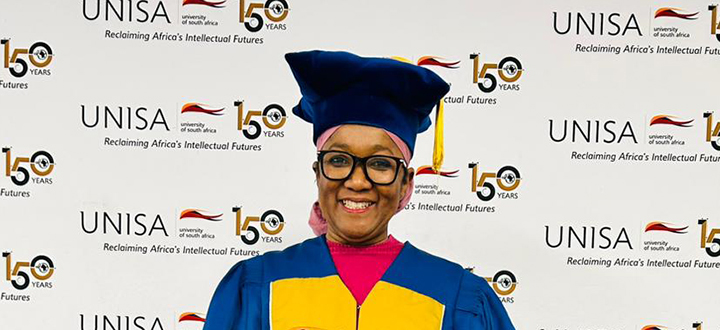 Unisa community engagement initiative targets school underperformance
Unisa community engagement initiative targets school underperformance
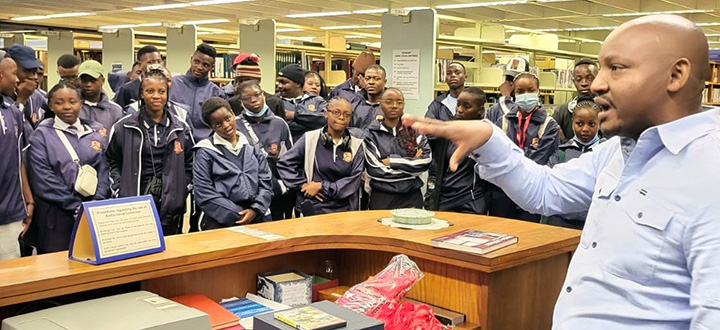 Library tour introduces learners to the wonderful world of Unisa
Library tour introduces learners to the wonderful world of Unisa
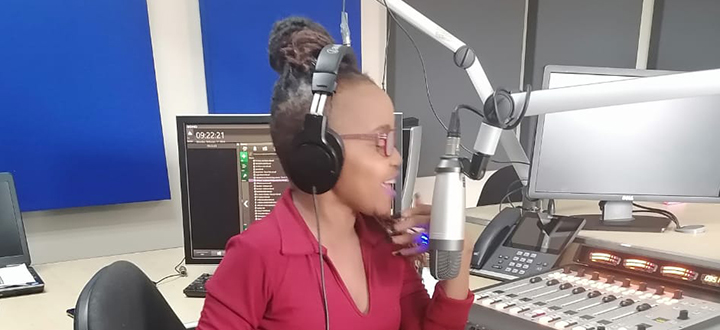 Unisa Radio volunteer wins prestigious community journalism award
Unisa Radio volunteer wins prestigious community journalism award
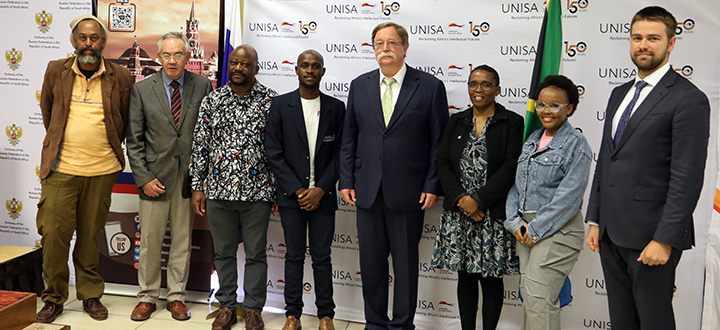 Unisa's student leadership engage with Russian ambassador
Unisa's student leadership engage with Russian ambassador
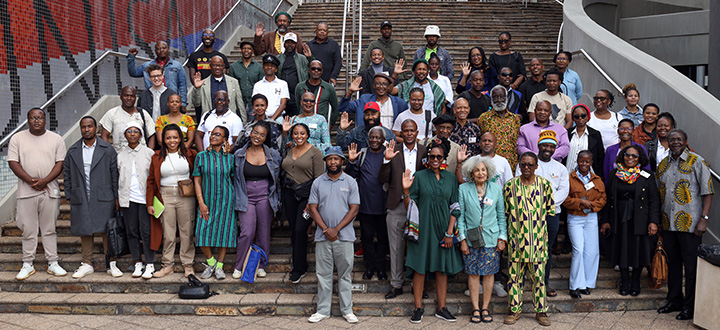 Re-igniting and re-imagining Pan Africanism, Afrocentricity and Afrofuturism in the 21st century
Re-igniting and re-imagining Pan Africanism, Afrocentricity and Afrofuturism in the 21st century